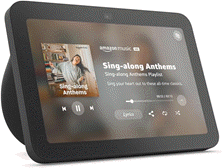2025-07-24 14:26:00
www.computerworld.com

Eyeing the upcoming end of support for Windows 10 in October, many IT buyers are snapping up Windows 11 AI PCs despite having no clear understanding of how to use them in their infrastructures.
“The use cases around AI PCs are not fully fleshed out just yet,” said Jitesh Ubrani, research manager at IDC. “Companies are struggling to figure out if AI PCs are worth the extra investment or not, especially when there’s a lot of AI that can be done in the cloud, as opposed to on the device itself.”
The end of Windows 10 support, the hype around “AI PCs,” the push from companies like Microsoft to use AI tools like Copilot — even the prospect of tariffs — all present IT buyers with a conundrum when it comes to hardware purchases. “The transition to…the generative AI PCs is slower than we expected,” Ubrani said. “And it’s mainly because of the environment we’re in right now.”
Overall, PC sales have been on an upswing. The PC market totaled 68.5 million units in the second quarter this year, growing 6.5% compared to the same quarter in 2024, according to IDC. (Gartner tallied PC shipments for the quarter slightly lower: 63.2 million units with a year-over-year growth rate of by 4.4%.)
But cost continues to be a big factor, especially since AI PCs can be expensive and don’t always perform as advertised — even if they have neural processing units (NPUs) designed to run genAI applications online.
What most end users care about is what generative AI (genAI) tools can accomplish on a PC, not how it’s done or what’s happening behind the scenes, Ubrani said. “We have expected this transition to happen fairly quickly…, especially because we were expecting costs to drop dramatically,” he said.
Instead, the adoption of AI PCs will likely take off next year, he said, especially with Qualcomm announcing new AI chips targeted at cheaper $600 PCs.
Although the AI software ecosystem hasn’t advanced as quickly as the hardware, AI will be increasingly important, with many apps utilizing the AI hardware or on-board NPUs, if available, said Ranjit Atwal, research director at Gartner. “AI PCs will be relevant, just not yet,” he said.
Microsoft has branded AI PCs as Copilot+ PCs in a bid to showcase the company’s genAI-based Copilot tools (and encourage the purchase of Windows 11 hardware). Chipmakers are in the mix as well: Intel, Qualcomm and AMD all offer chips with AI processors for Copilot PCs.
More hype than help (for now)?
But many AI PC buyers are being wooed with promises not yet fulfilled because the hardware may lack the specialized chips for on-device AI. Further complicating things: Microsoft also markets Copilot PCs that run only cloud-connected Copilot tools — not on-device AI.
The current Copilot+ hardware requirements are a little ambitious, given they don’t have applications that need those requirements, Atwal said. He argued companies should try to future-proof their purchases now. “It’s about how much you invest in the future, when applications such as conversational AI and other multi-modal interaction capabilities come along,” he said.
Microsoft is making fundamental changes to Windows 11 to make it an AI-savvy OS. The company in recent months added Phi and Mu small language models (SLMs) that can run directly on PCs and plans to include models to run Copilot in Microsoft 365 without an Internet connection. (Those applications will need AI PCs.)
The development of SLMs — and how efficiently they run — will be a key to future AI PC success. But more performance alone won’t be enough, Atwal said.
IT buyers should also be mindful of the security risks, said Jack Gold, principal analyst at J. Gold Associates. “It would be a good idea to educate users on the pros and cons, and policies around Copilot,” he said.
The free version of Copilot is available to download and use and could potentially leak sensitive data.
Although the enterprise version of Copilot requires a license, giving IT some control over its use, the free version is available to download and could potentially leak sensitive data. That could be an issue for smaller companies “where there is more variability,” Gold said.
AI PCs or not, companies should stick to their regular hardware upgrade cycles, said Jim McGregor, principal analyst at Tirias Research. “AI will always be a hybrid solution between the device and the cloud, so it’s best to buy to current needs,” he said.

Stay updated with the Echo Show 8 (3rd Gen) – your ultimate hands-free assistant for news, entertainment, and more. With 10K+ bought in the past month, 14,769 ratings, and an impressive 4.5 out of 5 stars, this device is a must-have!
Help Power Techcratic’s Future – Scan To Support
If Techcratic’s content and insights have helped you, consider giving back by supporting the platform with crypto. Every contribution makes a difference, whether it’s for high-quality content, server maintenance, or future updates. Techcratic is constantly evolving, and your support helps drive that progress.
As a solo operator who wears all the hats, creating content, managing the tech, and running the site, your support allows me to stay focused on delivering valuable resources. Your support keeps everything running smoothly and enables me to continue creating the content you love. I’m deeply grateful for your support, it truly means the world to me! Thank you!
|
BITCOIN
bc1qlszw7elx2qahjwvaryh0tkgg8y68enw30gpvge Scan the QR code with your crypto wallet app |
|
DOGECOIN
D64GwvvYQxFXYyan3oQCrmWfidf6T3JpBA Scan the QR code with your crypto wallet app |
|
ETHEREUM
0xe9BC980DF3d985730dA827996B43E4A62CCBAA7a Scan the QR code with your crypto wallet app |
Please read the Privacy and Security Disclaimer on how Techcratic handles your support.
Disclaimer: As an Amazon Associate, Techcratic may earn from qualifying purchases.














![Massive Apple deal event – M3 iPad Air all-time low, AirPods, M4 MacBooks $300 off, more [Updated]](https://techcratic.com/wp-content/uploads/2025/08/AirPods-Pro-2-AirPods-4-360x180.jpg)


























































![BASENOR 3PCS Tesla Model Y Model 3 Center Console Organizer [Carbon Fiber Edition]…](https://techcratic.com/wp-content/uploads/2025/08/71R5dfCR9FL._AC_SL1500_-360x180.jpg)















![Alien: Romulus – 4K + Blu-ray + Digital [4K UHD]](https://techcratic.com/wp-content/uploads/2025/08/81fBb0Z1egL._SL1500_-360x180.jpg)














